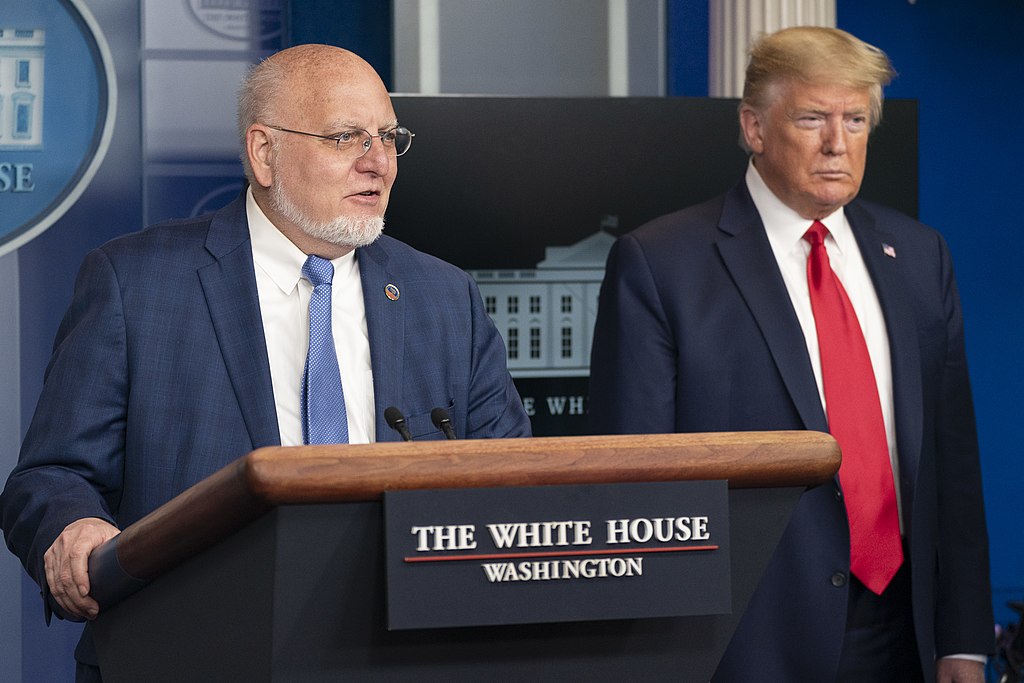Former Centers for Disease Control and Prevention (CDC) Director Dr. Robert Redfield has made headlines with his assessment of President-elect Donald Trump’s pick for Secretary of Health and Human Services (HHS), Robert F. Kennedy Jr. Redfield’s remarks about Kennedy’s approach to vaccine skepticism and health policy have reignited heated debates across the political and scientific communities.
Kennedy, a known critic of vaccine mandates and some mainstream public health initiatives, has been a polarizing figure throughout his career. His nomination to head the HHS has drawn criticism from medical professionals and public health advocates. Yet, Dr. Redfield’s comments have added a surprising twist to the ongoing discourse.
Speaking to reporters, Redfield suggested that Kennedy’s critical approach to vaccines and public health systems could lead to innovative and “science-oriented” discussions within the HHS. While acknowledging the controversy surrounding Kennedy’s stance, Redfield emphasized the potential benefits of questioning longstanding health policies.
Kennedy's Views Stir Controversy
Kennedy has long championed skepticism over vaccine mandates, positioning himself as a defender of individual rights in medical decisions. His controversial stance has drawn criticism from prominent public health experts, who argue that his questioning of vaccine safety undermines decades of scientific research.
However, his supporters argue that Kennedy’s leadership could bring much-needed transparency and reform to health agencies often accused of prioritizing pharmaceutical profits over public welfare.
Public health experts remain divided. Some see Kennedy’s appointment as a step backward, citing concerns that his views could erode public trust in vaccines and health programs. Others view it as an opportunity to address systemic flaws in the health care system, including funding priorities and regulatory inefficiencies.
Redfield’s Perspective Sparks Outrage
Dr. Redfield’s remarks have added fuel to the fire. As former CDC Director, his acknowledgment of Kennedy’s “science-oriented” approach has drawn both praise and sharp criticism. Many argue that Redfield’s perspective legitimizes Kennedy’s controversial views, while others see it as a call to critically reassess existing health models.
The scientific community remains largely skeptical of Kennedy’s credentials. Experts warn that his focus on vaccine safety could lead to the spread of misinformation, potentially derailing public health initiatives at a critical time. However, Redfield suggested that Kennedy’s nomination could provoke meaningful dialogue about improving health care systems.
Political Implications and Backlash
The nomination has also sparked political backlash. Democratic lawmakers have called for a thorough vetting process, voicing concerns about Kennedy’s potential to weaken key health programs. Meanwhile, Republican supporters argue that Kennedy’s appointment reflects Trump’s commitment to challenging bureaucratic norms and prioritizing transparency.
With Kennedy’s confirmation process looming, the controversy shows no signs of abating. Advocates and critics alike are preparing for a contentious debate that could redefine the future of U.S. health policy.



 HHS Adds New Members to Vaccine Advisory Panel Amid Legal and Market Uncertainty
HHS Adds New Members to Vaccine Advisory Panel Amid Legal and Market Uncertainty  Trump Orders Federal Agencies to Halt Use of Anthropic AI Technology
Trump Orders Federal Agencies to Halt Use of Anthropic AI Technology  Zelenskiy Urges Change in Iran After U.S. and Israeli Strikes, Cites Drone Support for Russia
Zelenskiy Urges Change in Iran After U.S. and Israeli Strikes, Cites Drone Support for Russia  Trump Launches Operation Epic Fury: U.S. Strikes on Iran Mark High-Risk Shift in Middle East
Trump Launches Operation Epic Fury: U.S. Strikes on Iran Mark High-Risk Shift in Middle East  Trump Announces U.S. Strikes on Iran Navy as Conflict Escalates
Trump Announces U.S. Strikes on Iran Navy as Conflict Escalates  Germany and China Reaffirm Open Trade and Strategic Partnership in Landmark Beijing Visit
Germany and China Reaffirm Open Trade and Strategic Partnership in Landmark Beijing Visit  Trump to Address Nation as U.S. Launches Strikes in Iran, Axios Reports
Trump to Address Nation as U.S. Launches Strikes in Iran, Axios Reports  Argentina Senate Approves Bill to Lower Age of Criminal Responsibility to 14
Argentina Senate Approves Bill to Lower Age of Criminal Responsibility to 14  EU Urges Maximum Restraint in Iran Conflict Amid Fears of Regional Escalation and Oil Supply Disruption
EU Urges Maximum Restraint in Iran Conflict Amid Fears of Regional Escalation and Oil Supply Disruption  UK Accepts U.S. Request to Use British Bases for Defensive Strikes on Iranian Missiles
UK Accepts U.S. Request to Use British Bases for Defensive Strikes on Iranian Missiles  Australian PM Calls Alleged Western Australia Terror Plot “Deeply Shocking” After Arrest
Australian PM Calls Alleged Western Australia Terror Plot “Deeply Shocking” After Arrest  Israel Declares State of Emergency as Iran Launches Missile Attacks
Israel Declares State of Emergency as Iran Launches Missile Attacks  Trump Warns Iran as Gulf Conflict Disrupts Oil Markets and Global Trade
Trump Warns Iran as Gulf Conflict Disrupts Oil Markets and Global Trade  Australia Rules Out Military Involvement in Iran Conflict as Middle East Tensions Escalate
Australia Rules Out Military Involvement in Iran Conflict as Middle East Tensions Escalate  Netanyahu Suggests Iran’s Supreme Leader Khamenei May Have Been Killed in Israeli-U.S. Strikes
Netanyahu Suggests Iran’s Supreme Leader Khamenei May Have Been Killed in Israeli-U.S. Strikes  U.S. Lawmakers Question Trump’s Iran Strategy After Joint U.S.-Israeli Strikes
U.S. Lawmakers Question Trump’s Iran Strategy After Joint U.S.-Israeli Strikes  Iran Supreme Leader Ayatollah Ali Khamenei Killed in Israeli, U.S. Strikes: Reuters
Iran Supreme Leader Ayatollah Ali Khamenei Killed in Israeli, U.S. Strikes: Reuters 
































